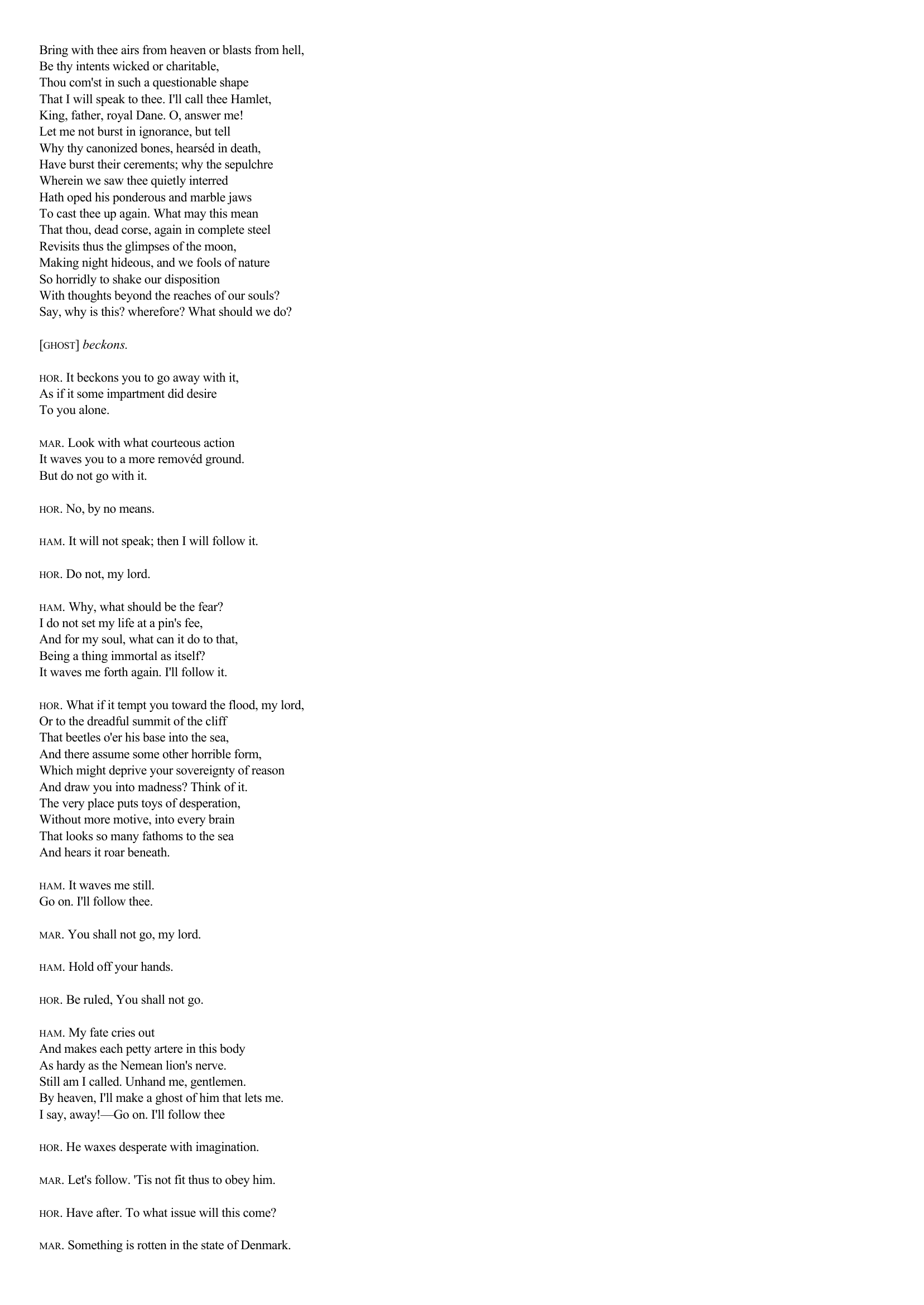From Hamlet - anthology.
Publié le 12/05/2013

Extrait du document
«
Bring with thee airs from heaven or blasts from hell,Be thy intents wicked or charitable,Thou com'st in such a questionable shapeThat I will speak to thee.
I'll call thee Hamlet,King, father, royal Dane.
O, answer me!Let me not burst in ignorance, but tellWhy thy canonized bones, hearséd in death,Have burst their cerements; why the sepulchreWherein we saw thee quietly interredHath oped his ponderous and marble jawsTo cast thee up again.
What may this meanThat thou, dead corse, again in complete steelRevisits thus the glimpses of the moon,Making night hideous, and we fools of natureSo horridly to shake our dispositionWith thoughts beyond the reaches of our souls?Say, why is this? wherefore? What should we do?
[GHOST ] beckons.
HOR.
It beckons you to go away with it, As if it some impartment did desireTo you alone.
MAR.
Look with what courteous action It waves you to a more removéd ground.But do not go with it.
HOR.
No, by no means.
HAM .
It will not speak; then I will follow it.
HOR.
Do not, my lord.
HAM .
Why, what should be the fear? I do not set my life at a pin's fee,And for my soul, what can it do to that,Being a thing immortal as itself?It waves me forth again.
I'll follow it.
HOR.
What if it tempt you toward the flood, my lord, Or to the dreadful summit of the cliffThat beetles o'er his base into the sea,And there assume some other horrible form,Which might deprive your sovereignty of reasonAnd draw you into madness? Think of it.The very place puts toys of desperation,Without more motive, into every brainThat looks so many fathoms to the seaAnd hears it roar beneath.
HAM .
It waves me still. Go on.
I'll follow thee.
MAR.
You shall not go, my lord.
HAM .
Hold off your hands.
HOR.
Be ruled, You shall not go.
HAM .
My fate cries out And makes each petty artere in this bodyAs hardy as the Nemean lion's nerve.Still am I called.
Unhand me, gentlemen.By heaven, I'll make a ghost of him that lets me.I say, away!—Go on.
I'll follow thee
HOR.
He waxes desperate with imagination.
MAR.
Let's follow.
'Tis not fit thus to obey him.
HOR.
Have after.
To what issue will this come?
MAR.
Something is rotten in the state of Denmark..
»
↓↓↓ APERÇU DU DOCUMENT ↓↓↓
Liens utiles
- From Bulfinch's Mythology: Venus and Adonis - anthology.
- From Bulfinch's Mythology: Theseus - anthology.
- From Bulfinch's Mythology: The Unicorn - anthology.
- From Bulfinch's Mythology: The Trojan War - anthology.
- From Bulfinch's Mythology: Hero and Leander - anthology.


